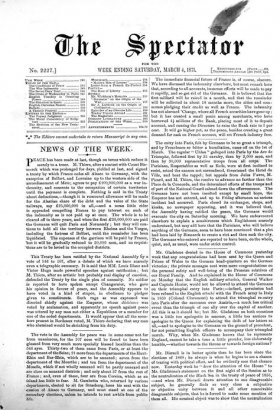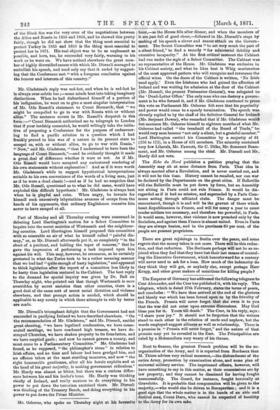Mr. Disraeli is in better spirits than he has been
since the elections of 1868; he always is when he begins to see a chance of teazing with political effect, and he evidently sees that chance now. Yesterday week he "drew the attention of the House" to Mr. Gladstone's statement on the first night of the Session as to the neutralization of the Black Sea in the treaty of peace of 1856, —and when Mr. Disraeli draws attention to one disagreeable subject, he generally finds so very close a subjective or objective unity between it and all other conceivable disagreeable subjects, that he is forced to make some mention of them all. His nominal object was to show that the neutralization
of the Black Sea was the very crux of the negotiations between the Allies and Russia in 1855 and 1856, and he showed this pretty fairly, though be did not show that the thing most essential to protect Turkey in 1855 and 1856 is the thing most essential to protect her in 1871. His real object was to be as unpleasant as possible, and here, too, he succeeded very fairly, warming to his work as he went on. We have noticed elsewhere the great num- ber of highly diversified sneers with which Mr. Disraeli managed to embellish his speech, and need only say that it ended by suggest- ing that the Conference met "with a foregone conclusion against the honour and interests of this country."



































 Previous page
Previous page